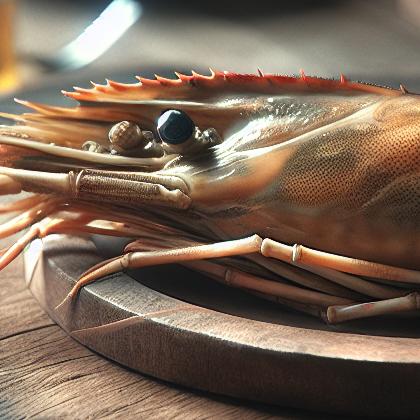Showing results for 'Prawn head'
close
Prawn Head

Crayfish, also known as crawfish, crawdads, freshwater lobsters, or mudbugs, are freshwater crustaceans resembling small lobsters, to which they are related; taxonomically, they are members of the superfamilies Astacoidea and Parastacoidea. They breathe through feather-like gills and are found in bodies of water that do not freeze to the bottom. They are mostly found in brooks and streams where there is fresh water running, and which have shelter against predators. Most crayfish cannot tolerate polluted water, although some species such as the invasive Procambarus clarkii are hardier. Crayfish feed on living and dead animals and plants.
Prawn head Pairs With:
Food Item
Flavor Affinity Level
Prawn head Properties:
| Food Property | Type | Description |
|---|---|---|
| Flavor Profile | Umami | Prawn heads have a rich umami flavor due to the presence of natural glutamate compounds. |
| Texture | Firmness | Prawn heads have a firm texture when cooked, with a slight crunchiness from the exoskeleton. |
| Nutritional Value | Macronutrients | Prawn heads are a good source of protein and healthy fats. |
| Micronutrients | Prawn heads are rich in minerals such as calcium, phosphorus, and magnesium. | |
| Color | Natural Pigments | Prawn heads have a reddish-brown hue from the natural pigments in the shell. |
| Aroma | Volatile Compounds | Prawn heads release aromatic compounds when cooked, adding a seafood aroma to dishes. |
| Chemical Composition | Water Activity (aw) | Prawn heads have a relatively high water activity, which can affect shelf life and spoilage. |
| Cooking Behavior | Heat Conductivity | Prawn heads cook quickly due to their high heat conductivity. |
| Water Retention | Prawn heads retain moisture well when cooked, preventing them from becoming dry and rubbery. |
Food Pairing App - Version 1.2.0
